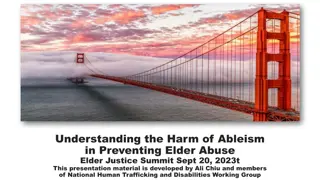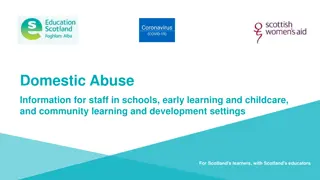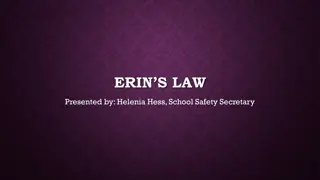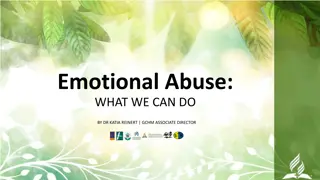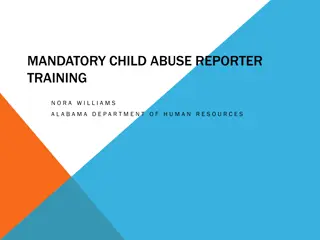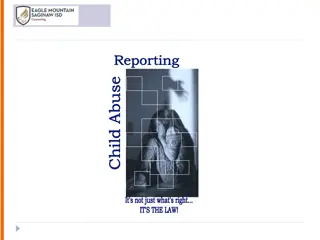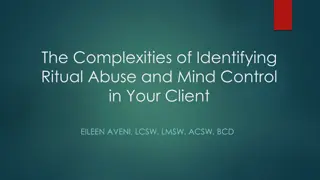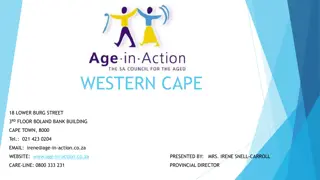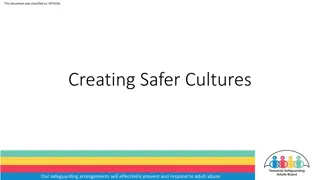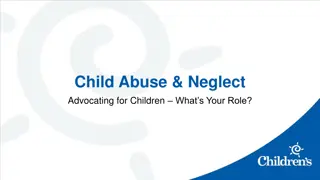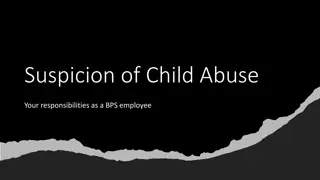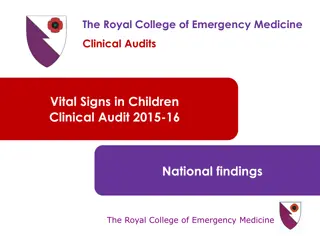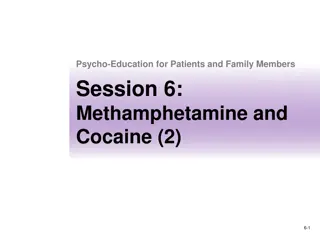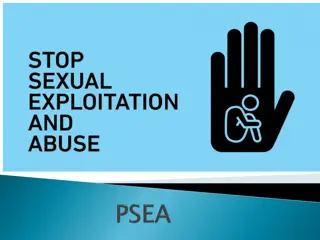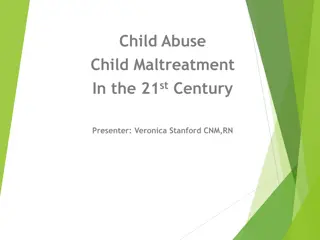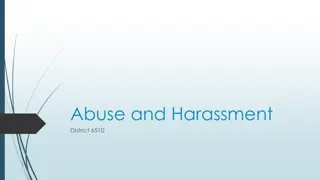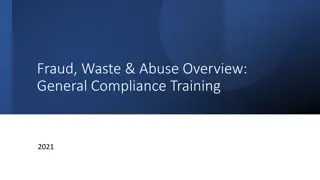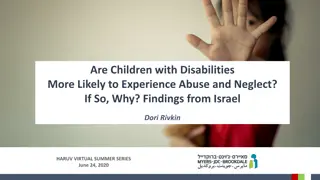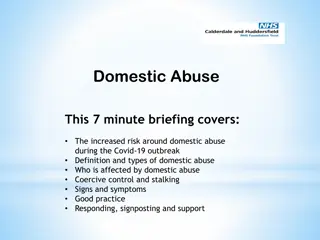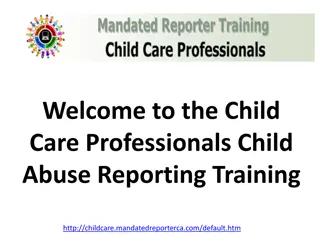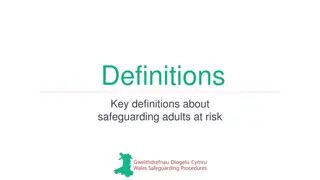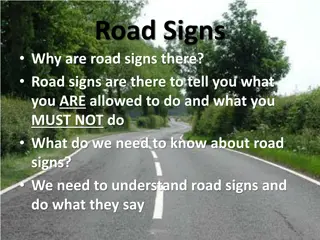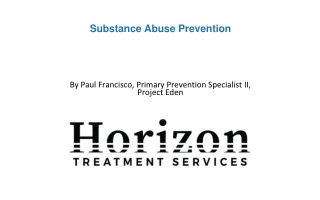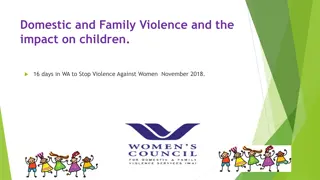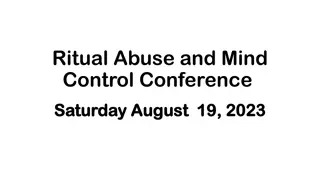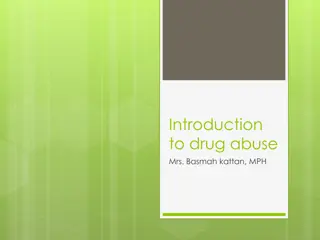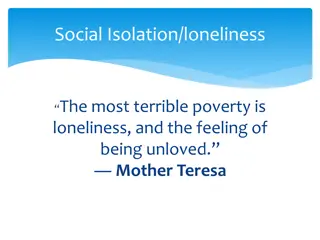Understanding Elder Abuse and Its Signs
Elder abuse can take various forms such as physical, psychological, financial, sexual abuse, and neglect, causing harm and distress to older individuals. Recognizing the signs of elder abuse is crucial to protecting vulnerable seniors in our communities. Signs can include physical injuries, unexplained changes in behavior, financial discrepancies, and more. Knowing the signs allows for early intervention and prevention of further harm.
Download Presentation

Please find below an Image/Link to download the presentation.
The content on the website is provided AS IS for your information and personal use only. It may not be sold, licensed, or shared on other websites without obtaining consent from the author. Download presentation by click this link. If you encounter any issues during the download, it is possible that the publisher has removed the file from their server.
E N D
Presentation Transcript
Elder Abuse Neighbourhood Watch Network NWN| Team
What is Elder Abuse? A single or repeated act or lack of appropriate action, occurring within any relationship where there is an expectation of trust, which causes harm or distress to an older person .
Types of Elder Abuse People can be abused in many different ways; there are five common types of abuse: physical, psychological, financial, sexual abuse neglect. Often these abuses are also crimes.
Signs of Physical Abuse Cuts, lacerations, puncture wounds, open wounds, bruises, welts, discolouration, black eyes, burns, bone fractures, broken bones, and skull fractures Untreated injuries in various stages of healing or not properly treated Poor skin condition or poor skin hygiene Dehydration and/or malnourished without illness-related cause Loss of weight Soiled clothing or bed Broken eyeglasses/frames, physical signs of being subjected to punishment, or signs of being restrained Inappropriate use of medication, overdosing or under-dosing An older person telling you they have been hit, slapped, kicked, or mistreated
Signs of Psychological Abuse Hesitation to talk openly Implausible stories Confusion or disorientation Anger without apparent cause Sudden change in behaviour Emotionally upset or agitated Unusual behaviour (sucking, biting, or rocking) Unexplained fear Denial of a situation Extremely withdrawn and non communicative or non responsive An older person telling you they are being verbally or emotionally abused
Signs of Financial Abuse Signatures on cheques etc., that do not resemble the older person s signature, or signed when the older person cannot write. Sudden changes in bank accounts, including unexplained withdrawals of large sums of money by a person accompanying the older person. The inclusion of additional names on an older person s bank account. Abrupt changes to, or the sudden establishment of, wills. The sudden appearance of previously uninvolved relatives claiming their rights to an older person s affairs or possessions. The unexplained sudden transfer of assets to a family member or someone outside the family Numerous unpaid bills, or overdue rent, when someone else is supposed to be paying the bills. Unusual concern by someone that an excessive amount of money is being expended on the care of the older person. Lack of amenities, such as TV, personal grooming items, appropriate clothing, that the older person should be able to afford. The unexplained disappearance of funds or valuable possessions such as art, silverware, or jewellery. Deliberate isolation of an older person from friends and family, resulting in the caregiver alone having total control.
Signs of Sexual Abuse Bruises around the breasts or genital area Unexplained venereal disease or genital infections Unexplained vaginal or anal bleeding Difficulty in walking or standing Marked changes in behaviour Torn, stained, or bloody underclothing An older person telling you they have been sexually assaulted or raped
Signs of Neglect Dirt, faecal or urine smell, or other health and safety hazards in older person s living environment Rashes, sores, or lice on him/her The older person is inadequately clothed The older person is malnourished or dehydrated The older person has an untreated medical condition The older person has poor personal hygiene Evidence of the withholding of medication or over-medication of the older person Evidence of a lack of assistance with eating and drinking Unsanitary and unclean conditions
What to do if you suspect Elder Abuse You can talk to the Hourglass helpline and seek advice, regardless of whether you are a carer, social worker, police officer, friend, neighbour etc. They are there to help. Ring their helpline on 080 8808 814 or use the online contact form https://wearehourglass.org/contact-us For more information: https://wearehourglass.org/what-do-about- abuse


